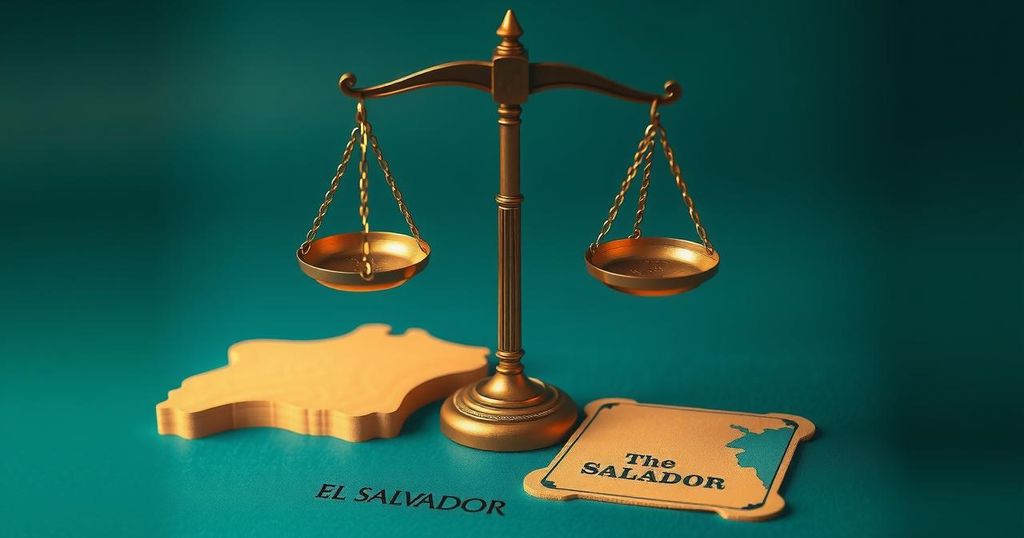Crime
AFRICA, ALEXANDRIA, ASIA, COURT CASE, CRIME, EGYPT, EL SALVADOR, EUROPE, HANS TER LAAG, IKON, INVESTIGATION, JAN, JAN KUIPER, KUIPER, LEGAL, LEGAL SYSTEM, MADRID, NETHERLANDS, NORTH AMERICA, PHILIPPINES, SOUTH AFRICA, SPAIN, TREASURY POLICE, TRIAL, TRUTH COMMISSION, UNITED NATIONS, UNITED STATES, US, VIRGINIA
Lena Nguyen
0 Comments
Lawsuit Advances Justice for Killed Journalist During El Salvador Civil War
Gert Kuiper’s quest for justice for his brother, Jan, and three other Dutch journalists killed during El Salvador’s civil war has progressed with a civil lawsuit against Reyes Mena. This case sheds light on the challenges of accountability in journalist killings amidst a history of impunity in El Salvador. There is hope that this legal action will lead to broader implications for justice regarding other wartime crimes.
Gert Kuiper vividly recalls the moment he learned of his brother, Jan Kuiper’s murder while covering the civil war in El Salvador, an event that transpired over 40 years ago. After hearing the news while in a bar in Madrid, Gert returned to the Netherlands, where he found extensive media coverage of the incident. “It felt like a movie. It didn’t feel real,” he expressed, highlighting the surreal nature of his loss on March 17, 1982, alongside three other Dutch journalists.
For years, Gert Kuiper has faced significant legal barriers in his pursuit of justice for his brother and the other journalists killed. This situation reflects the broader issue of impunity regarding journalist murders worldwide and the challenges El Salvador has encountered in reconciling its civil war history. At the age of 71, Gert’s pursuit of accountability has gained momentum through a recent civil lawsuit against Reyes Mena, a former Salvadoran military officer implicated in the killings, currently pending in a Virginia district court.
This civil lawsuit coincides with ongoing criminal proceedings in El Salvador, in which not only Mena but also a former minister and police director are being prosecuted. However, as of now, a trial date has not been established for the criminal case. Mena’s legal counsel has not responded to inquiries regarding the lawsuit.
Throughout the El Salvador civil war, an estimated 75,000 civilians lost their lives, predominantly at the hands of U.S.-backed security forces. The U.N. truth commission, formed post-war, investigated the murders of the Dutch journalists, identifying Mena as responsible for orchestrating their deaths as they attempted to enter guerrilla-held territory. Legal advocates have noted this case as emblematic of the atrocities committed during the conflict.
Gert acknowledges his moral duty to seek justice, stating, “I felt a moral obligation at least to try.” However, the journey has been fraught with setbacks, notably due to a previously enforced amnesty law that obstructed accountability measures post-war. In a significant legal breakthrough, El Salvador’s Supreme Court annulled this amnesty law as unconstitutional in 2016, leading to potential prosecution of high-ranking military personnel for war crimes.
The current case has garnered attention as a landmark opportunity to challenge the historic impunity prevalent in El Salvador. Activist Oscar Perez remarked, “This case could mean the rupture of historic impunity here in El Salvador,” while other legal experts have noted the complexities that arise when non-Salvadoran victims seek justice. Despite the long-standing impunity for massacres, there remains hope that this case will set a precedent for other unresolved crimes from the war.
Kuiper’s legal representatives argue that Mena’s likelihood of avoiding extradition to El Salvador fortifies the need for the U.S. civil lawsuit, which is built upon the Torture Victim Protection Act. This legal framework permits victims’ families to seek justice in U.S. courts. Both the El Salvadoran and U.S. justice systems have yet to comment on the case.
This lawsuit underlines a distressing trend of journalist deaths remaining unresolved globally, with nearly 80% of such cases from the last decade still unsolved, as reported by the Committee to Protect Journalists. CPJ’s Latin America coordinator, Cristina Zahar, highlighted, “Killing is the most extreme way of silencing a journalist.” Zahar emphasized the importance of perseverance in seeking justice, articulating a belief that accountability, even decades later, conveys a potent message.
Although the civil case may not impose criminal penalties, Gert seeks acknowledgment of the intentional nature of the killings: “It’s important to fight to the utmost to get an official acknowledgment,” he reiterated, affirming that recognition of these tragic events is paramount to his quest for justice.
The pursuit of justice for the slain Dutch journalists during El Salvador’s civil war has taken a significant step forward with Gert Kuiper’s civil lawsuit against former military officer Reyes Mena. This case highlights the persistent issues of impunity and the complexities surrounding legal actions, especially for foreign victims. With the potential to challenge historical precedents in El Salvador, there is hope that this case may pave the way for accountability in other wartime atrocities, sending a powerful message about the importance of justice, regardless of how much time has transpired since the crime.
Original Source: www.voanews.com




Post Comment